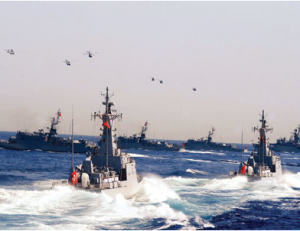
By Jay R.
As the Arab Spring has forced successive leaders from their posts, Turkey has been positioning itself to be the hegemon of influence in the region. This effort can be seen through the visits of Prime Minister Erdogan to Egypt and Libya, in addition to his nation’s strong stance against Assad’s Allawite regime in Syria.
Turkey has also been the sole voice of contention with regard to Cyprus’s natural gas exploration efforts in the eastern Mediterranean – a voice that has threatened a gamut of responses from the severing of its ties with the European Union to an all out attack on Cyprus’ drilling installations. This last stance however may have been the bite that was too much for Turkey and quite possibly the reasoning behind its recently softened position on the issue.
Turkish-Cypriot relations persist in contradiction to the rest of the world, as it is the only nation that recognizes the breakaway Turkish Republic of Northern Cyprus, while not acknowledging the Greek-administered Republic of Cyprus. This lone fact has led to the espousal of anti-Greek Cypriot rhetoric – rhetoric that seems to have backed Turkey into a corner of which it is now trying to break out of.
The Republic of Cyprus has positioned itself with wide-ranging international cooperation through its natural gas efforts in the eastern Mediterranean. It secured a powerhouse American energy company to conduct operations in its first drilling block, while establishing a comprehensive partnership with Israel – another nation slated to become a significant natural gas exporter. Furthermore, the Republic of Cyprus is a member of the European Union, a body that is looking to diversify its current energy supplies amidst the unrest in the MENA region and likely looks favorably towards the idea of securing a fellow member nation as a future energy supplier.
If Turkey’s intentions of having strong regional influence are in earnest, it surely realizes that it must maintain a strong relationship with the West and not enact policy which will likely lead to its isolation in some areas. Moreover, Turkey would be careless were it to position itself outside of the great potential that exists with exporting Israeli and Cypriot natural gas to the whole of Europe. Due to the history of Turkish action and rhetoric towards both countries in this regard, the Israeli-Cypriot partnership has already begun to prode on how best to bypass Turkey in the shipments of their future natural gas supplies to Europe. The advent of such a solution would in the end deprive Turkey of potentially billions of dollars of infrastructure investment.
Another item that cannot be ignored is that Greek and Turkish Cypriots are currently at the table talking reunification under United Nations auspices. These efforts have intensified in recent weeks as the United Nations looks to have this matter settled before Cyprus assumes the European Union presidency in mid-2012. A settlement of the Cyprus issue would effectively all but sideline Turkish influence in this area and it seems as though Turkey has become cognizant of this fact. Therefore, it is no real surprise that Turkey has backed away from its calls to sever its EU ties should a divided Cyprus rise to the EU presidency and is additionally discussing opening its air and sea port to Greek Cypriot vessels.
Over the past few years, Turkey has seen its opportunity to join the European Union crumble, which may have led to its cozying up to newly established governments in the region. However, if it is intent on solidifying itself as the regional hegemon it desires to be, it will have to maintain good relations with the West, which will eventually involve embracing the Republic of Cyprus.
Read more here about Max Security consulting services.